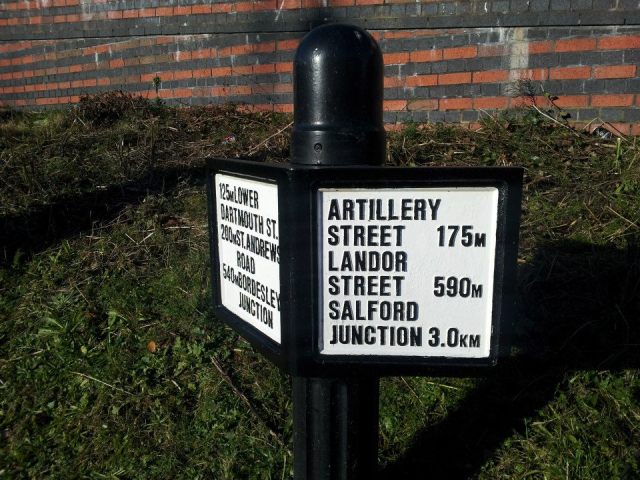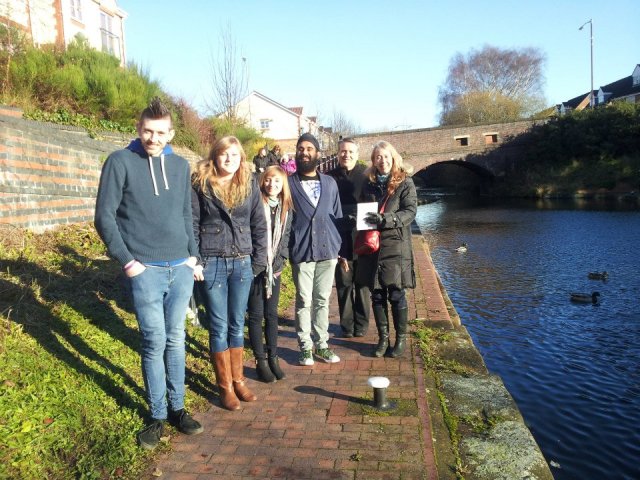Recently Jo Bell was awarded the inaugural Canal Poet Laureateship for the Canal and River Trust. Boats and writing have been easy bedfellows over the years, however the creation of any new position will always provoke conflicting views. As a professional writer, but modestly experienced canal boater, I thought I would find out more by attending one of Jo’s canal poetry workshops at Bordesley in Birmingham with my mind open, and pen poised.
The canal network in England and Wales ( curiously, Scotland ceded from inclusion in the canal laureateship) is long overdue a makeover. Physically, the canals enabled the industrial revolution and Empire. Yet they are largely out of view, of necessity at ground level, and easily missed. Their industrial urban roots and routes mean that in areas of population , they tend to be tucked away, and in the countryside their modest width is barely noticed. Modern day use is overwhelmingly for leisure, not commerce, now. Although the nagging suspicion remains that anything that physically connects areas of population and business has latent potential beyond mere recreation, the lazy pace of the canal wildly juxtaposes the modern mantra of speed and immediacy.
The historic story is there to be told to a generation who, post the 1960’s have seen canals in recreational terms only. A contemporary story is there to be told about how the canals are now. And a debate is to be had about what the future may hold, as well as celebrating the present and past. It strikes me that writing is an intrinsic part of all of that. Where does poetry fit into that? For me, it is capable of joining up the emotional, historic and contemporary dots, concisely and memorably resonating with the converted, and enticing the non-believers to the subject.
My fellow work-shoppers, a dozen or so strong, were a reassuringly diverse bunch of men and women ranging from twenty something students, to some fifty and sixty somethings. The leadership could not have been stronger. Maya, from the Canal Trust, was on hand to lead the tour and provide expert local knowledge. However the credentials of Jo herself could not be stronger. She is a canal boat owner and dweller, as well as an erstwhile qualified industrial archaeologist, her talents now dedicated to poetry and writing.
The claim that Birmingham has more miles of canal than Venice is now disputed, suffice to say Birmingham has a lot of canals. However the distinction between the two canal networks is not one of relative length, but of visibility. In Venice canals are everywhere, in Birmingham most people never see one. So our tour was of a twilight zone, a forgotten world where commerce is all but gone, and tourists understandably prefer a more pastoral setting. Birmingham’s canal value is as a hub passing through, rather than a destination on its own.
That sense of people turning their backs on canals is physical as well as metaphorical. Gates, doorways, hatches and loading bays that once faced the canals are bricked up as the railways, then roads took the trade, and they were required on the other side of the buildings. Of course the canals remained and abandoned space never remains so for long. Graffiti art blazes across deserted, forgotten walls, joggers jog, ducks paddle and foxes lie low almost indignant at the intrusion of passing boat traffic.
In the workshop itself two exercises stood out. The first was an exercise in simply using place names and how effective that could be. Canals are rich in nomenclature, Farmers Bridge Flight, The Delph Run, and the Anderton Lift are tales all on their own, not simply names. The second was in writing call and response poems where one writer assumed the voice of one canal character, and another the other, most memorably this was demonstrated in a poem of the angler and the fish. What struck me was that the calibre of poet was high, and although their previous connection with the canals was minimal, the results were of a high quality. When replicated around the country this is where the symbiosis develops, of two hitherto unconnected entities, now connected. Where the canals yield up their stories, and the people beyond the towpaths and factory walls are lured to learn, enjoy, celebrate and contribute.
Indeed there is a symmetry between great poetry and the simple enduring physicality of the cut, the canals and their mechanism. Both can do their job with beauty and the minimum of fuss. With this in mind Jo Bell, Ian McMillan and Roy Fisher are to have some lines affixed to some new lock gates. A great unifying force between poetry and canals is time. Writing needs time, canals offer it, whether its is aboard travelling, on the towpath walking and watching, or at the locks waiting, time is available, a rare luxury these days.
Why should there be a canal poet laureate? Half a day with Jo Bell provided ample reasons. Why not come and find out for yourself?
Jo’s Blog: http://belljarblog.wordpress.com/
Canal and River Trust: http://canalrivertrust.org.uk/



